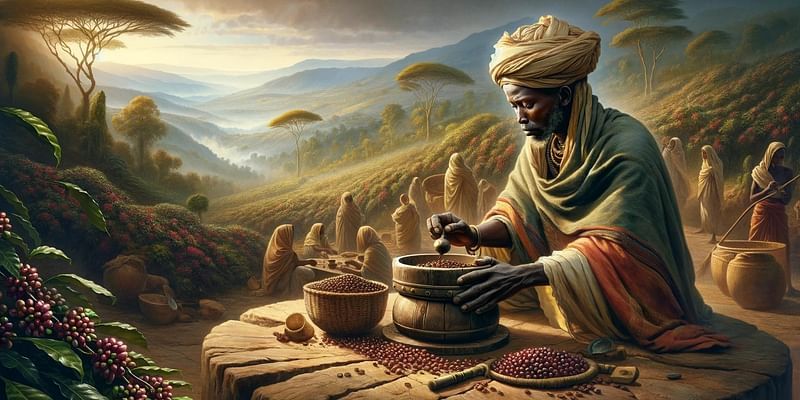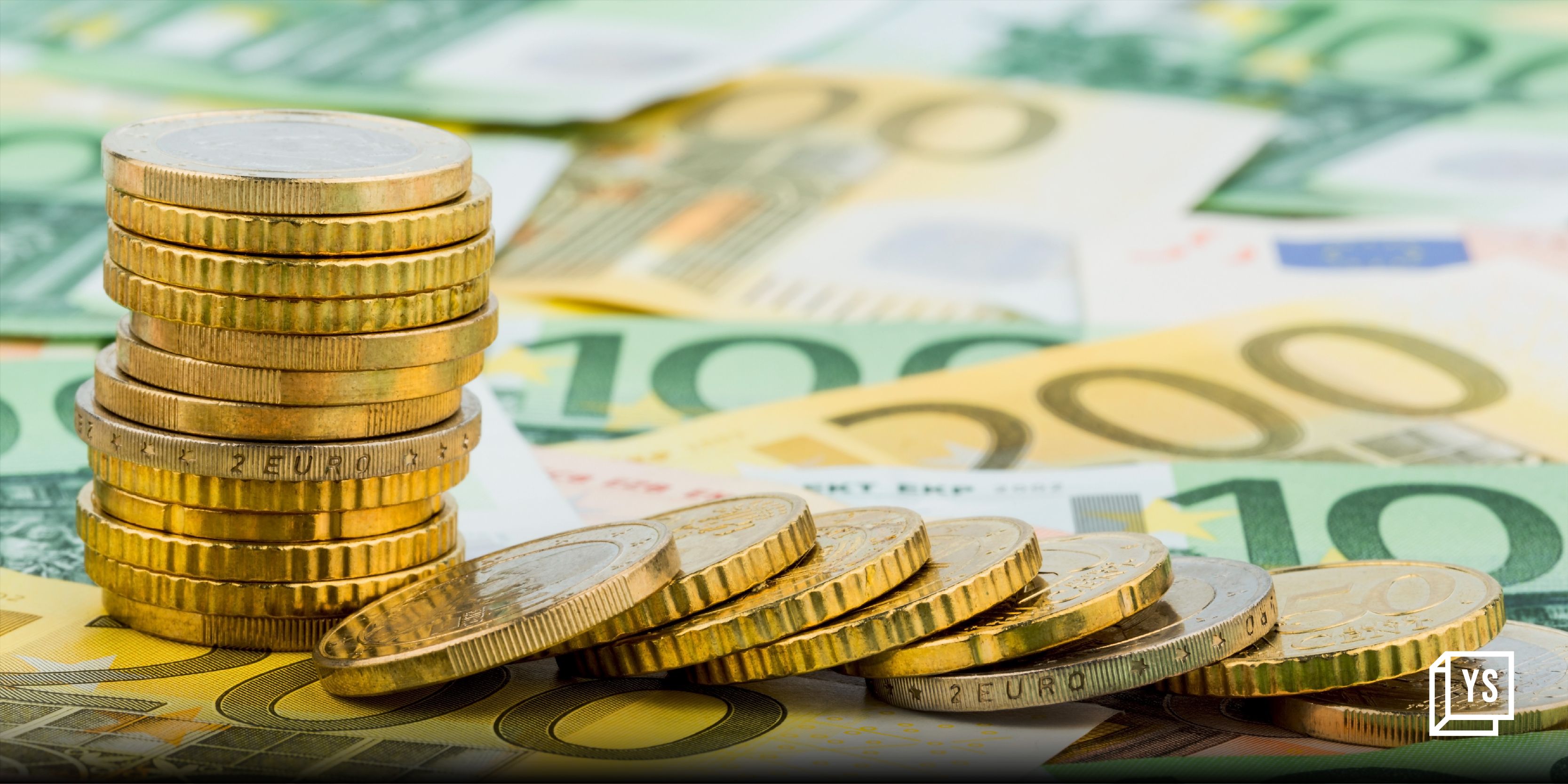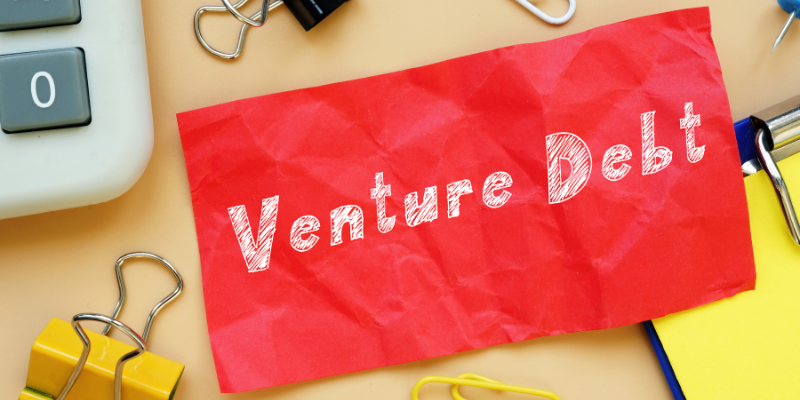Everyone Drinks It, But No One Knows How Coffee Was Discovered? Dive In To Know!
Ever wonder how that magic elixir in your mug went from a mystery bean to the world's go-to "get up and grind" potion? Believe it or 'bean' it, the history of coffee is shrouded in a blend of legend and fact, but one thing's for sure – it's a caffeinated journey worth exploring.
Ah, coffee! That rich, aromatic elixir that fuels our mornings, sparks our creativity, and has us saying "Espresso yourself" more often than not. But have you ever paused mid-sip and pondered, "How did humanity stumble upon this magical bean?" Today, we're spilling the beans on the entire history of coffee, so grab your favorite cup of Nescafe, and let's dive into this tale bean by bean.
Our story begins in the lush landscapes of Ethiopia, where, according to popular legend, a young goatherd named Kaldi noticed his goats frolicking with unusual vigor after munching on some mysterious red berries. Curious (and maybe a little sleep-deprived himself), Kaldi tried the berries himself and was soon bouncing alongside his herd. A monk observed this and decided to brew a drink with these berries, discovering it kept him alert through the long hours of evening prayer. This serendipitous discovery marked the birth of coffee as we know it.

Coffee's journey from a wild plant to a cultivated staple began around the 15th century, primarily in Yemen. Sufi monasteries used it to stay awake during prayers, and it wasn't long before coffee spread across the Arabian Peninsula. The port city of Mocha in Yemen became synonymous with coffee, giving us the term still used today for chocolate-flavored coffee drinks. By the 16th century, coffee had made its way to Persia, Egypt, Syria, and Turkey, not just as a drink but as a part of the social fabric, with coffee houses known as "qahveh khaneh" popping up in every city.
Coffee entered Europe through the port of Venice, courtesy of trade with the Ottomans. Initially met with suspicion and dubbed the 'bitter invention of Satan,' the Pope's blessing flipped its fate, and coffee quickly became the beverage of choice across the continent. Coffeehouses, or "penny universities" as they were called in England, became the centers of intellectual exchange. By the 18th century, Europe was so enamored with coffee that it began to cultivate coffee plants in its colonies, changing the global coffee landscape forever.
In the 17th century, coffee made its way to the New World, and by the 18th century, it had become a significant crop in the Caribbean, South America, and Central America. The infamous story of how Brazil became a coffee powerhouse involves a bit of intrigue — it's said that Francisco de Mello Palheta seduced the French Guiana governor's wife to secure coffee seedlings, which he then smuggled into Brazil. Whether fact or fiction, Brazil would become the world's largest coffee producer by the 19th century.
The Modern Brew: Innovation and Trends
Today, coffee is more than just a beverage; it's a global phenomenon intertwined with culture, economics, and innovation. Specialty coffees, single-origin beans, cold brews, and sustainable practices reflect the evolving tastes and ethical considerations of modern consumers. With over 2 billion cups consumed daily, coffee's popularity shows no signs of waning.

Trending phrases like "third-wave coffee," "farm-to-cup," and "cold brew craze" underscore the industry's shift toward quality, transparency, and innovation. Moreover, the rise of home baristas, fueled by the pandemic, has led to a surge in online coffee communities, tutorials, and D.I.Y. coffee brewing methods.
Beyond the Cup: The Science Behind the Buzz
But what exactly gives coffee its magical pick-me-up power? The answer lies in a little molecule called caffeine. Caffeine works by blocking adenosine, a neurotransmitter that makes you feel sleepy. By blocking adenosine, coffee essentially hits the pause button on drowsiness, allowing you to feel more alert and focused.
So, the next time you savor that steaming cup of Nestle, remember the long and fascinating journey it took to get there. From energetic goats (or maybe it was a wide-eyed monk) to the global phenomenon it is today, coffee's history is rich, complex, and downright fascinating.
Want to roast your coffee knowledge even further? Here are some trending coffee facts for 2024:
- Sustainability is Brewing: Eco-conscious consumers are driving a demand for ethically sourced and sustainable coffee beans.
- Cold Brew Craze Continues: Cold brew coffee remains a hot (well, cold) favorite, offering a smooth and less acidic taste.
- Alternative Milk Options Abound: From oat milk to macadamia milk, plant-based alternatives are brewing up a storm in the coffee world.
- Coffee Subscriptions Take the Grind Out of Getting Your Fix: Subscription services deliver fresh, high-quality beans straight to your doorstep, ensuring a never-ending supply of delicious coffee.
Whether you're a casual coffee drinker or a full-blown connoisseur, understanding the history and science behind this beloved beverage adds a whole new layer of appreciation to your daily cup. So, keep calm and caffeinate – the world awaits your bright-eyed and bushy-tailed ideas!
Edited by Rahul Bansal











